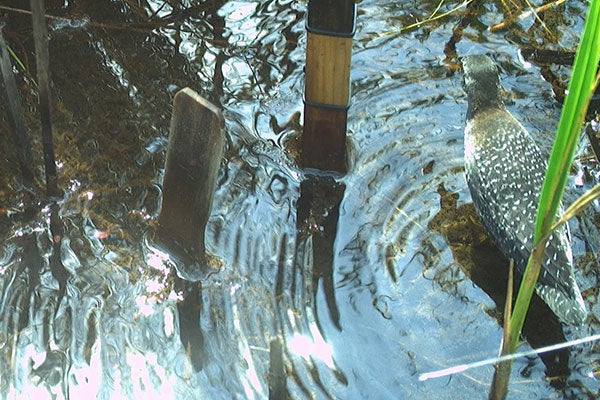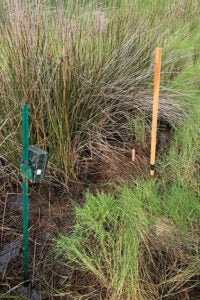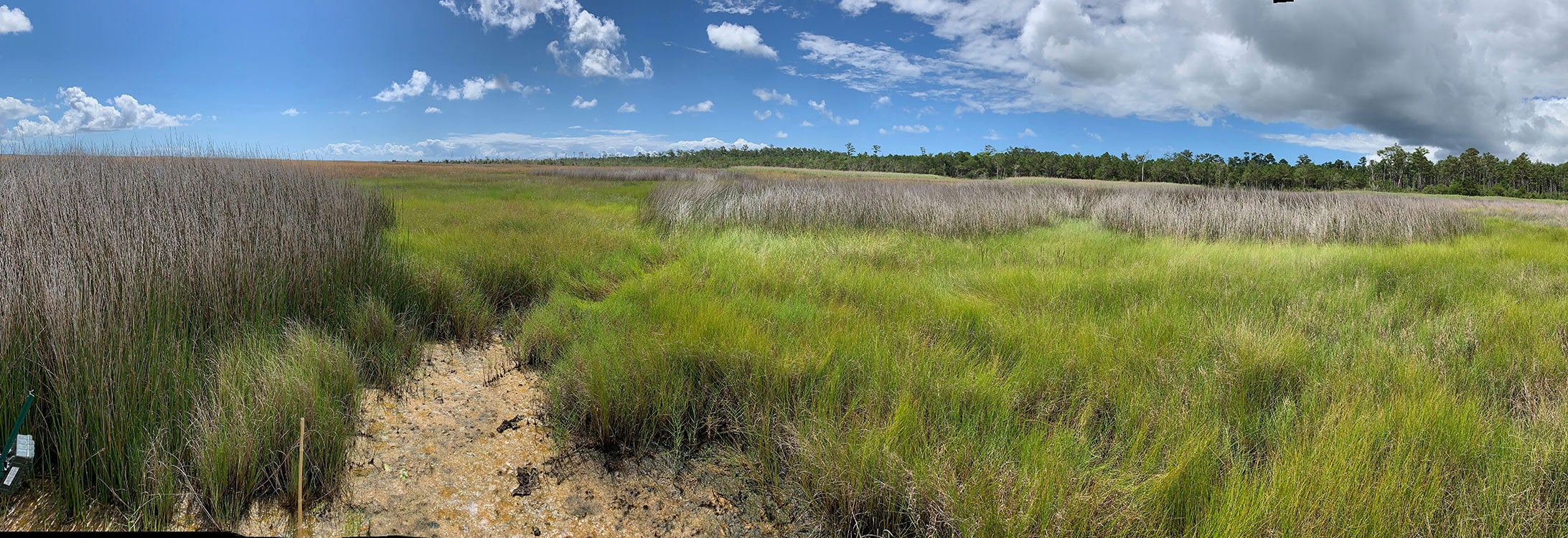McRae awarded prestigious grant to continue research on elusive eastern black rail
Dr. Susan McRae, a teaching professor in East Carolina University’s Department of Biology, has won the Animal Welfare Institute’s prestigious Christine Stevens Wildlife Award. The award provides individual grants of up to $15,000, and it is named in honor of AWI’s late founder and longtime president who dedicated her life to reducing animal suffering.

Trail camera footage of an eastern black rail in its marshy habitat. (Contributed photo)
“I’m delighted, and it is always nice to receive validation of your work,” said McRae.
McRae is one of nine researchers from across the country developing humane solutions to human-wildlife conflicts. She will use scent lures to increase the effectiveness of trail cameras to non-invasively monitor eastern black rails, a threatened marsh bird species.
McRae began teaching ornithology at ECU in 2000, but her interest in researching the family of rails started in 1991. She was one of only a few researchers studying this family of birds. In 2011, she began studying king rails and was aware that the eastern black rail was the most endangered and elusive of the birds.
“I wasn’t even sure if there were any left,” she said. “They are so rare, and I didn’t necessarily see it as a viable student research option because I wasn’t sure if they would find them.”
However, she received a grant to fund research, along with a graduate student, on the black rail in 2017. Her research student developed an eDNA diagnostic technique for detecting black rails, and he did find a few of the reserved birds.
McRae said most of her research into the birds has been developing techniques that advance the ability to monitor and detect them, such as with eDNA, autonomous recording units and trail cameras. Now she is working to try to enhance the detection of rails. She wants to understand more about their ecology and behavior to assist in their conservation. Humans moving into coastal areas, sea-level rise and fires are a few aspects that disrupt and hinder the birds’ natural environments.
Black rails are shy, nocturnal birds that are small — weighing just more than one ounce — with short legs. They like moist soil and have been located in tidal areas of Carteret County. According to McRae, the birds are scattered about and may number in the low 100s, at most, so they are difficult to locate. She said she may have found about a dozen throughout her years of research.

McRae’s trail camera is set up where she hopes to capture more photos of the eastern black rail. (Contributed photo)
Through this new grant, McRae will work with Robert Driver, an ECU alumnus and current research scholar at Duke University in the Department of Molecular Genetics and Microbiology, who tests substances that bind to olfactory receptors. He is creating scents for McRae to use in the field, which may attract and lure the black rail.
She said recent research suggests the rails may have a good sense of smell, which is not typically associated with birds.
“This is a new direction for us and it has never been tried before, so it is high risk,” McRae said. “We don’t know what is going to happen.”
The research is also risky because neither knows if the scents will attract or detract the birds. However, if they can identify smells the birds are attracted to, trail cameras may capture their movements without human interference.
“I know that we are going to get interesting information from the camera deployments, one way or another, but it will be a fun challenge to try some new things,” McRae said.
McRae is fundamentally interested in the natural history, ecology and behavior of birds. She hopes to learn more about the black rails’ secretive lives, their behaviors, mating patterns, pairings with one or more birds, when and where they breed, how many chicks they may have, and other demographics that make them different from other species. Overall, McRae’s goal is to assist in the conservation and restoration of their natural habitats, and scents may be a way to attract them to that habitat.
“AWI is proud to continue our tradition of funding diverse, innovative research that uses nonlethal techniques to improve the study of wildlife,” said Susan Millward, AWI’s CEO and executive director.
For more information about the award and the 2024 winners, visit the AWI website.
